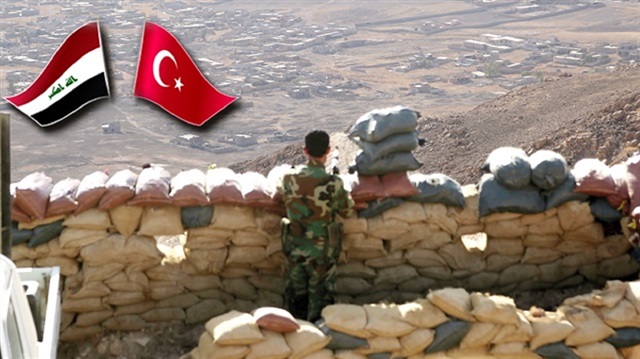
Experts indicate the importance of improving Turkey and Iraq's bilateral relations and the two's cooperation in the military operation that is to be conducted for clearing Mosul from Daesh terrorists
The military operation which is aimed at liberating Mosul, an Iraqi city that Daesh has declared as its so-called headquarters, and expected to be conducted in Iraq's Mosul soon has brought up the importance of turning over a new leaf in the bilateral relations of Turkey and Iraq.
Chairman of the Iraqi Turkmen Front and Kirkuk deputy Salih Ersad said close bilateral relations of Turkey and Iraq is a 'must' for the sake of the operation.
"If Iraqi forces cooperate with Turkish forces, the terror corridor would be prevented. However Iraq cannot achieve a solution without Turkey," Ersad said.
Iraqi Ambassador to Ankara Hisham Allawi said Iraq will be needing Turkey during the reconstruction and preparing substructure phases.

"The two countries had very good relations in 2013. Now, the two countries should make it even better than in 2013. Our investors and economists are eager to pay a visit to Turkey," he said.
Emin Taha, the President of Foreign Economic Relations Board's Turkey Iraqi Business Council, said that Iraq is irreplaceable for Turkey in terms of economy.
"Daesh terrorism interrupts the Turkish investments in Iraq. Iraq's oil income decreased to 40 billion dollars from 100 billion dollars," he said.
Columbia University Global Energy Policy Research Center Director Dr. Luay Khateeb said that Turkey and Iraq should restart to improve bilateral relations at the state level, not individually.
"The bilateral relations are limited with relations between some politicians and parties. Many of these Iraqi politicians and parties lost their legitimacy in Iraq already," Khateeb said.
Iraqi politician and former Mosul Governor Atheel Al Nujaifi said that Turkey must contribute to the Mosul operation, after its success in clearing Jarabulus from the Daesh terrorists.
Former Iraqi Prime Minister Ayad Allawi, in his speech to Yeni Şafak daily newspaper, said that including Kurdistan Workers' party (PKK) terrorists in an operation in the Middle East would be a “fatal error".
"If any of the party does such a mistake, then this move would transform the relation with Turkey, making it 'irreparable'.
Ghazi Mashal Ajil al-Yawer, Iraq's first president after Saddam Hussein, said he believes the importance of the relations between Baghdad-Ankara.
"To remove the radicalism, Iraqi politics should be involved in the solution process," he said.

The declarations of experts followed Iraq officials' statements which say Turkish forces will not be allowed to participate in military operations aimed at liberating Mosul, an Iraqi city that Daesh has declared as its so-called headquarters.
On Monday, a spokesman for the Iraqi Foreign Ministry said that recent remarks by Turkish President Recep Tayyip Erdoğan, regarding the need for the participation of Turkish forces in the Mosul operation, strain the bilateral ties.
Ankara, in December 2015, deployed about 150 soldiers equipped with heavy weapons and backed by two dozen tanks to Bashiqa of Mosul, aiming at training and equipping Iraqi Kurdish Peshmerga forces in the fight against Daesh.
Iraq has suffered a devastating security gap since 2014, when Daesh captured the northern city of Mosul along with vast swathes of territory in the country's northern and western regions.
In recent months, the Iraqi army, backed by U.S.-led airstrikes and local allies on the ground, has since managed to retake much of the territory lost earlier to Daesh.
However, the terrorist group remains in firm control of several parts of the country, including Mosul.





